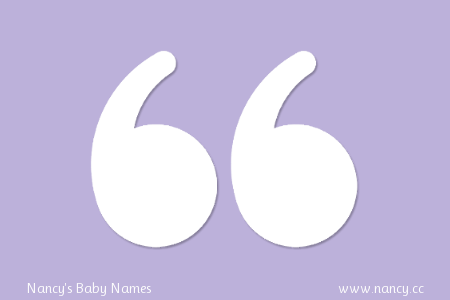Some interesting thoughts on why only certain Irish names tend to be anglicized, from the Irish Arts Center:
“Caoimhe” has been consistently more popular than the anglicized spelling, “Keeva.” How did this happen when so many other Irish names appeared to make concessions to English spelling norms?
While Medb/Maeve, Sadhbh/Sive, Seán/Shawn and other names were popular at a time when the Irish language and pride in Irish identity was against the ropes, Caoimhe and Fiadh are names that rose in the ranks when Ireland was swaggering culturally and commercially. It was also a time when Irish language television and schools were making strides.
Caoimhe is one of the names given by parents to the first generation of daughters not expected to emigrate, who would grow up surrounded by people who would know that the “mh” sounds like a “v” in the middle or at the end of a word.
…And another quote from the same site that I just couldn’t leave out:
Teachers warning their students of the importance of a fada will often point out that without the accent, Orla (‘uhr-lah’) would mean “vomit” rather than “golden princess.” However, Órlas have to live with this indignity in an online world where many websites won’t accept non-standard characters.
[According to this letter to the Irish Times, the same holds true for the names Méabh and Síne, which, without the fadas, turn into the words meabh, “hen,” and sine, “nipple.”]
From a Telegraph essay by Warren Watson (b. 1950), who had a “surprise” twin brother named Wayne.
So, what happened to the name William? […] It was the traditional family name for a Watson male, going back at least four generations in England and Scotland.
Fairness was paramount for my mom, you see. […] If I were named William, it would not be fair to my twin brother. So, neither Watson would be honored with the family name.
In 1950, she dug out a baby name book, purchased earlier at the Rexall drug store downtown. “Warren” and “Wayne” sat there in the same column. So, “Warren” and “Wayne” they would be. In alphabetical order, of course.
From a Condé Nast Traveler article about hotels using artificial intelligence, including robots with interesting names:
Meanwhile, in Singapore, the M Social hotel is using a front-of-house robot called Aura to deliver small amenities like water, towels, and toiletries to rooms. Another robot, Ausca, cooks your eggs in the morning. Elsewhere in the city, Hotel Jen uses colorful butler robots named Jeno and Jena to perform guest services that include in-room dining delivery.
From a Daily Mail article about nominative determinism:
And now, a man called Keith Weed has been appointed president of the Royal Horticultural Society.
Of course he has. Especially when you hear that his father’s name was Weed and his mother’s name was Hedges.
‘If a Weed gets together with a Hedges, I think they’re going to give birth to the president of the RHS,’ said Mr Weed, 59, who lives near RHS Wisley in Surrey.
From the 1812 book A General History and Collection of Voyages and Travels (Vol. 4), edited by Robert Kerr:
When the eldest son of Huana Capac was born, he ordered a prodigious chain or cable of gold to be made, so large and heavy that two hundred men were hardly able to lift it. In remembrance of this circumstance, the infant was named Huascar, which signifies a cable or large rope, as the Peruvians have no word in their language signifying a chain. To this name of Huascar was added the surname Inca, belonging to all their kings, just as Augustus was given to all the Roman emperors.
[The name Huascar was a one-hit wonder in the SSA data in 1997, incidentally.]
